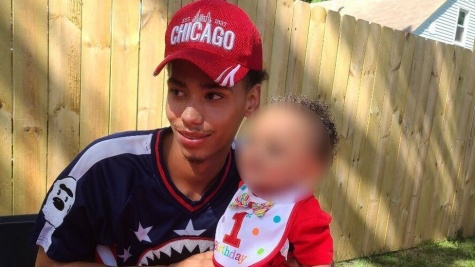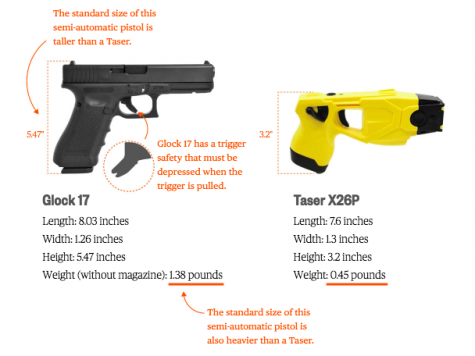
Eden Milligan | Head Editor
April 16, 2021
On April 12, just ten miles from the street where George Floyd was killed in May, Daunte Wright, a 20-year-old Black man, was shot and killed by Kim Potter, a white police officer.
Minneapolis, already a hotspot for persistent protests for justice and police reform, has exploded again with people mourning the loss of a father, a son, a brother, and a man whose skin color may have been the cause of a life cut short. Only a few blocks away, the Dereck Chauvin trials are deciding the fate of a person whose actions brought attention to an ongoing trend of police violence against Black people. Wright’s death is a sobering reminder that this trend, despite almost a year of upheaval against racism and police brutality, still continues.
“Honestly, my first thought after hearing about Wright’s killing was that it was yet another name to add to the list of black deaths: George Floyd, Ahmed Arbery, Breonna Taylor…it never ends,” senior Riya Khetarpal said. “The fact that I was so numb to this news really says something about the way systematic prejudice influences our society.”
“I was incredibly saddened to hear about the loss of Daunte Wright. Beyond the injustice of another black man dying needlessly at the hands of police, the circumstances are just devastating,” junior Liam Smith said.
Daunte Wright was pulled over by police for traffic violations having to do with expired license plates and a hanging air freshener (Minnesota state law prohibits hanging objects from the rear-view mirror). Officers then discovered an outstanding warrant related to Wright’s past charges of carrying a pistol without a permit and fleeing the police, which officers used to justify asking him to exit his car.
Wright hesitated at first, inquiring to know why he was being asked to step out of his car and if he had unknowingly done something wrong. Wright had called his mother the moment he was pulled over by police, and she recalls hearing some of the tense exchange between Wright and Potter over the phone. (Tramadol online) Mrs. Wright asked her son to hand over the phone to the police so she could provide his insurance information. The officer told Wright to hang up the phone, and he did. Wright resisted arrest and attempted to escape the officers’ hold on him by lurching back into his car. Potter pulled a gun and shot Wright once in the chest. Wright started driving away but quickly crashed. His gunshot wound was fatal.
Potter and the Brooklyn Center Police Department have claimed that the shot was a mistake, citing evidence in a video recording of the event, in which Potter shouts “taser, taser, taser” while drawing the gun, and “Holy [expletive], I shot him,” afterwards, seeming to imply the shock that would follow a horrible accident. The logical explanation for the mixup is that officers are taught to always have their guns on their dominant side and tasers on their non-dominant side, but Potter’s weapons seem to have been accidentally flipped on this day. Her reliance on muscle-memory and lack of logical processing in the stressful situation could have led her to use the wrong weapon.

Though seemingly based on a simple mixup, the mistake that ended Daunte Wright’s life is under great scrutiny. Many people are terrified by Potter’s lack of control in this crucial moment, and of the fact that she reached for a weapon so quickly in the first place.
“It is very probable that Potter’s reaction was a result of her implicit bias,” Khetarpal said. Many share a similar opinion: that the killing was the result of mindless racism which has penetrated deeply into the police force and into US society as a whole.
In an interview for Good Morning America, Daunte Wright’s parents said that they “cannot accept” that their son was killed merely by mistake, especially given the 26 years of experience Potter had in dealing with similar situations.
“Mistake or not, the shooting of Duante Wright definitely says something about the police force,” Khetarpal said. “It says that we need more training for officers, and it says that tasers and guns should not be the go-to when it comes to routine traffic stops or minor infractions. It says that more anti-bias and anti-racist training needs to be given to law enforcement personnel to avoid situations like this.”
Kim Potter, as well as the Minneapolis chief of police, resigned from the police force on the day of Wright’s killing. Potter has since been charged with second degree manslaughter, and faces a maximum sentence of 10 years in prison.
However, there is a much larger issue, ceaselessly spotlighted in the last year yet brought by Wright’s death to an even clearer focus, behind this specific event. Though one officer being relieved of her duties and sent to court is a step, Minneapolis and the rest of the nation has far more to do if more needless Black deaths are to be prevented.

Leave a Reply